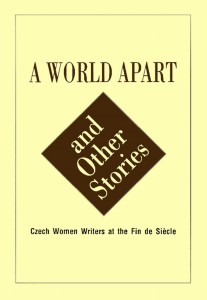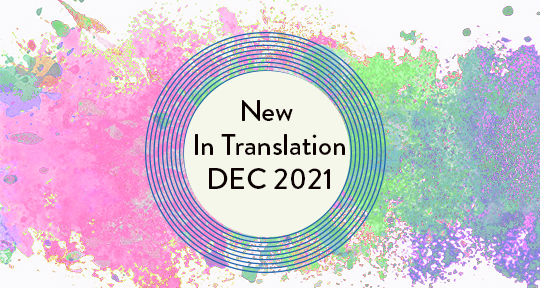This month, our selections of the best in global literature present a bevy of questions to be answered—rectifying the neglect of Czech women’s writing at the end of the twentieth century, solving murders, and chasing that ever-wandering place of home. Read on for these pivotal texts that are taking place amidst the most sustaining inquiries of our time: of secrets, of memory, and of desire.

A World Apart and Other Stories by Various Authors, translated from the Czech by Kathleen Hayes, University of Chicago Press, 2021
Review by Maddy Robinson, Social Media Manager
Kathleen Hayes’s collection of fin-de-siècle Czech women’s writing, A World Apart and Other Stories, is to be granted a second edition—twenty years after its initial publication, and around a century after the heyday of its writers. As Hayes informs us in her introduction, despite the proliferation of women’s writing in Czech literary magazines and anthologies at the time, or the academic attention the period has received, there continues to be a distinct lack of English translations for feminine texts from the turn of the century. In an effort to combat this dearth of material, Hayes carefully selected and translated eight short stories written before the First World War, to offer English language readers entry into a literary movement that might otherwise have remained solely within the domain of Central European Studies academics. We are presented with invaluable insight into the societal and individual concerns which accompanied this turbulent period in history, especially viewed in the context of a people struggling with “the woman question.”
The book opens with Božena Benešová’s “Friends,” an evocative tale of childhood sensitivity to perceived social hierarchies, and a frank condemnation of anti-Semitism. Hayes remarks that this is rather unusual, given that “at the time it was written, negative references to the Jews were still the norm in Czech literature.” The story also constitutes an anomaly in this anthology, as from this point on, there is but one central theme around which each story revolves: passion, forbidden or otherwise.
She was a strange woman, but perhaps, after all, strange only from my point of view. I was totally incapable of getting close to her soul.
The titular story, “A World Apart,” was published in an anthology of the same name in 1909 by Růžena Jesenská and is perhaps the most striking and complex of the collection. Travelling by train, the protagonist Marta recounts the story of a friendship she once had with a Miss Teresa Elinson, an intense woman whom she also met on a train, and who convinces her to visit her manor house “A World Apart.” Miss Elinson’s attempts to seduce Marta are not initally met with outright rejection—however, there is a foreboding, Du Maurier-like sense that if she were to remain at A World Apart, she might suffer the same fate as her deceased predecessor, Berta. Though Hayes puts the unlikely subject matter of lesbian desire more down to “literary convention than psychological realism,” Jesenská’s depiction of the risks of breaking worldly norms, as well as her portrait of the passionate, Dandy-esque figure of Teresa Elinson, make for a fascinating contribution to any study of turn-of-the-century queer desire and its manifestations. READ MORE…

